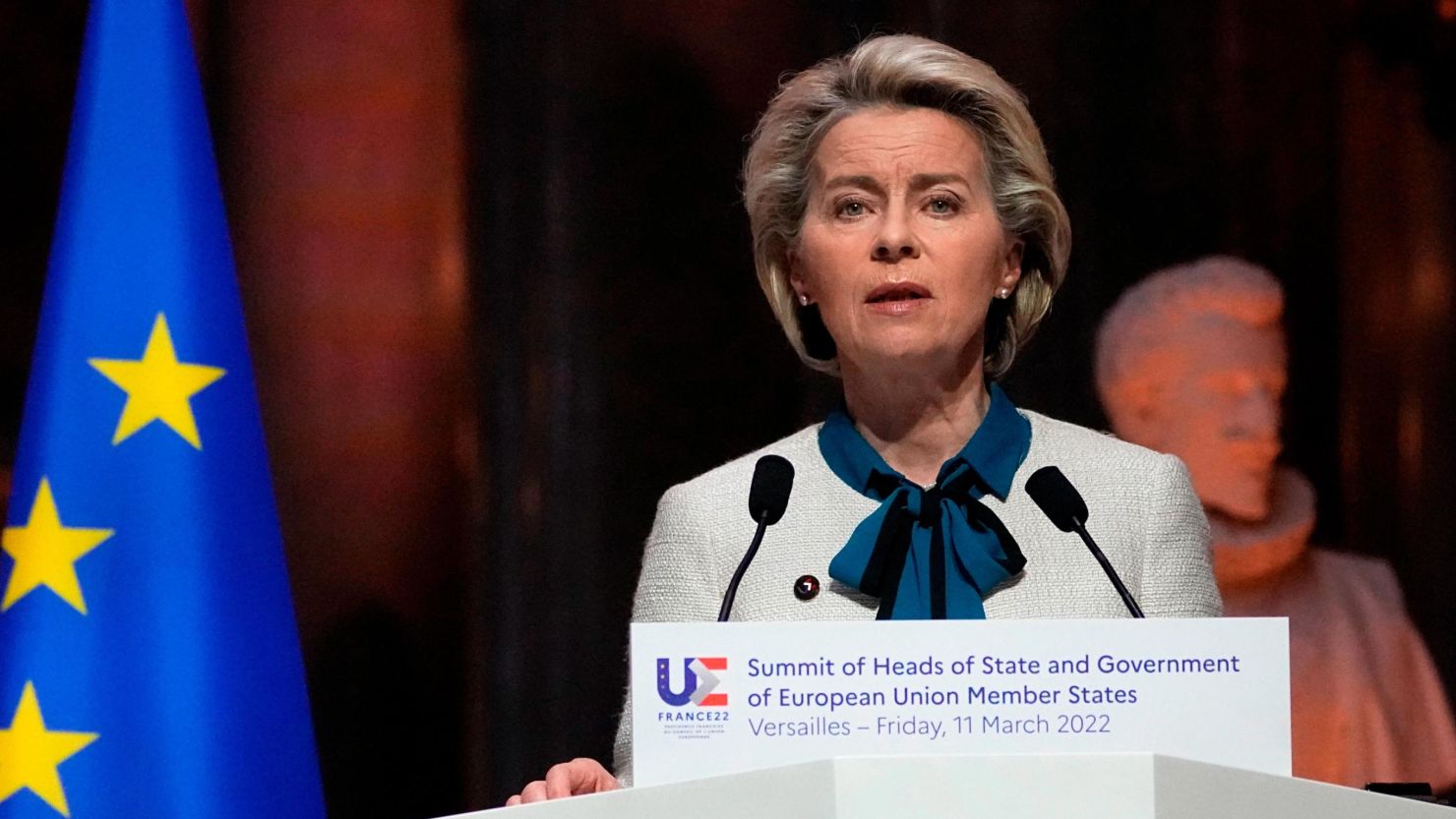Europe has given itself just five years to break its addiction to Russian oil and gas.
European Commission President Ursula von der Leyen said Friday that EU leaders had agreed to spend the next two months drafting proposals for eliminating the bloc’s dependency on Russian energy imports by 2027.
“By mid-May we will come up with a proposal to phase out our dependency on Russian gas, oil and coal by 2027, backed by the necessary national and European resources,” Von der Leyen said after an emergency summit of EU leaders called to discuss Russia’s war in Ukraine.
The European Union has promised to diversify its energy supplies before, notably back in 2014 when Russia annexed Crimea from Ukraine. Little progress was made, partly because Germany — Russia’s biggest energy customer in Europe — didn’t want to rock the boat with Moscow.
But President Vladimir Putin’s decision to order last month’s invasion changed all that. Within days, German Chancellor Olaf Scholz had killed off the Nord Stream 2 pipeline, a project co-financed by German companies that would have vastly increased Russia’s capacity to send gas directly to Europe, bypassing Ukraine.
And earlier this week, Von der Leyen and her officials outlined plans to slash EU gas imports from Russia this year by finding alternative suppliers, speeding up the shift to renewable energy, reducing consumption through energy efficiency improvements and extending the life of coal and nuclear power plants that would otherwise have been shut down.
Frans Timmermans, EU climate policy chief, said Tuesday that Europe could replace 100 billion cubic meters of Russian gas imports by the end of 2022.
“That is two thirds of what we import from them,” he told reporters. “Two thirds by the end of this year. It’s hard, bloody hard but it’s possible if we’re willing to go further and faster than we’ve done before,” he added.
The European Union depends on Russia for about 40% of its natural gas. Russia also supplies about 27% of its oil imports, and 46% of its coal imports. Taken together, that trade is worth tens of billions of dollars a year to Russia.
EU leaders have made clear this week that the bloc can’t yet join the United States in banning Russian oil, because of the impact that would have on households and businesses already grappling with record high prices. A giant fertilizer company this week slashed European production because of record high natural gas prices.
But Europe knows it needs to act fast to reduce the potential for Moscow to use energy as a weapon in the economic warfare unleashed by the Russian invasion of Ukraine.
Russian deputy prime minister Alexander Novak said Monday Russia could cut off the supply of gas to Germany via the Nord Stream 1 pipeline in retaliation for Berlin blocking the new Nord Stream 2 pipeline project.
Speaking alongside EU Council President Charles Michel and French President Emmanuel Macron after the summit in Versailles, near Paris, von der Leyen said the Commission would bring forward a proposal requiring underground gas storage facilities to be 90% full by the beginning of October each year.
“This will be our insurance policy against supply disruption,” she said.





